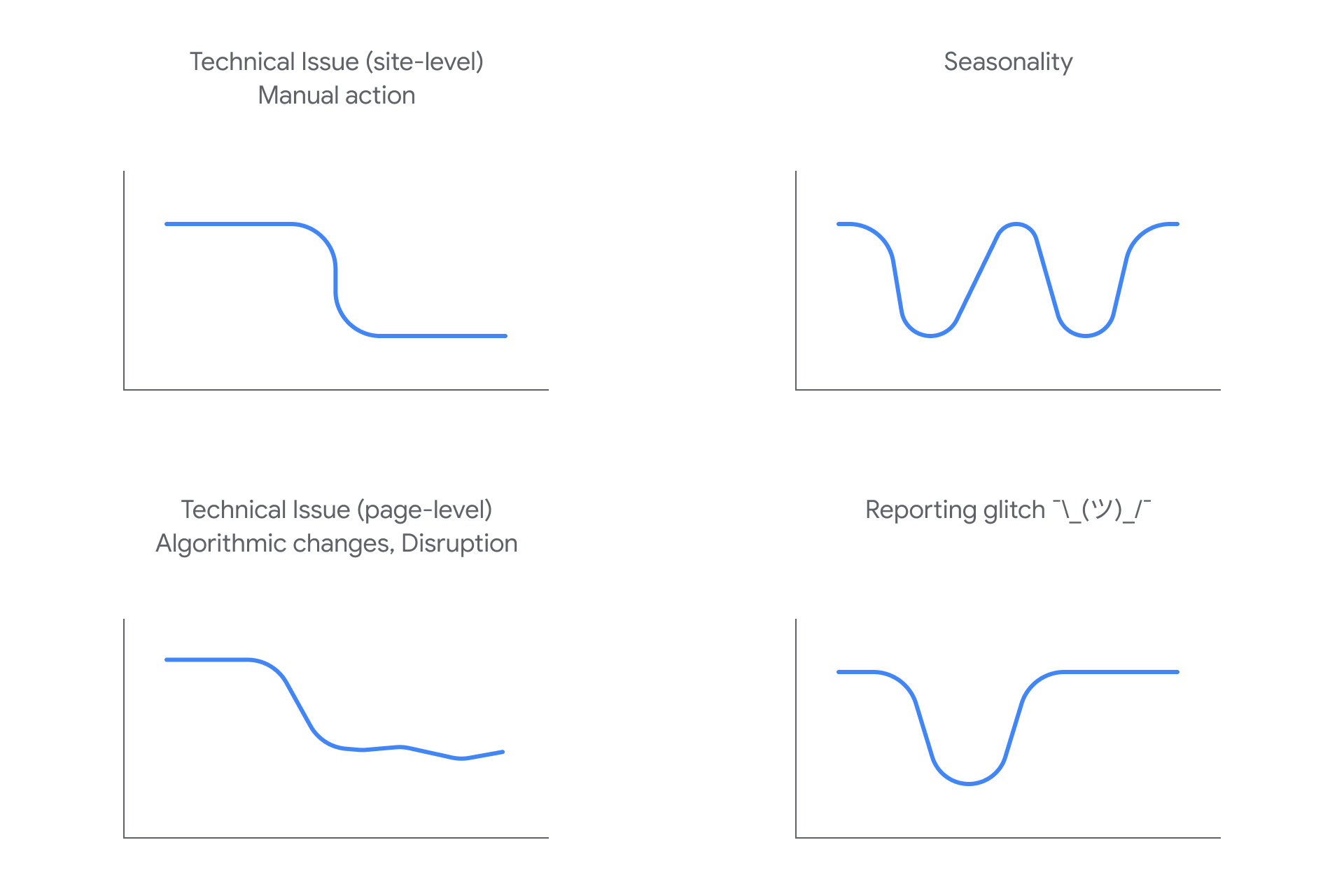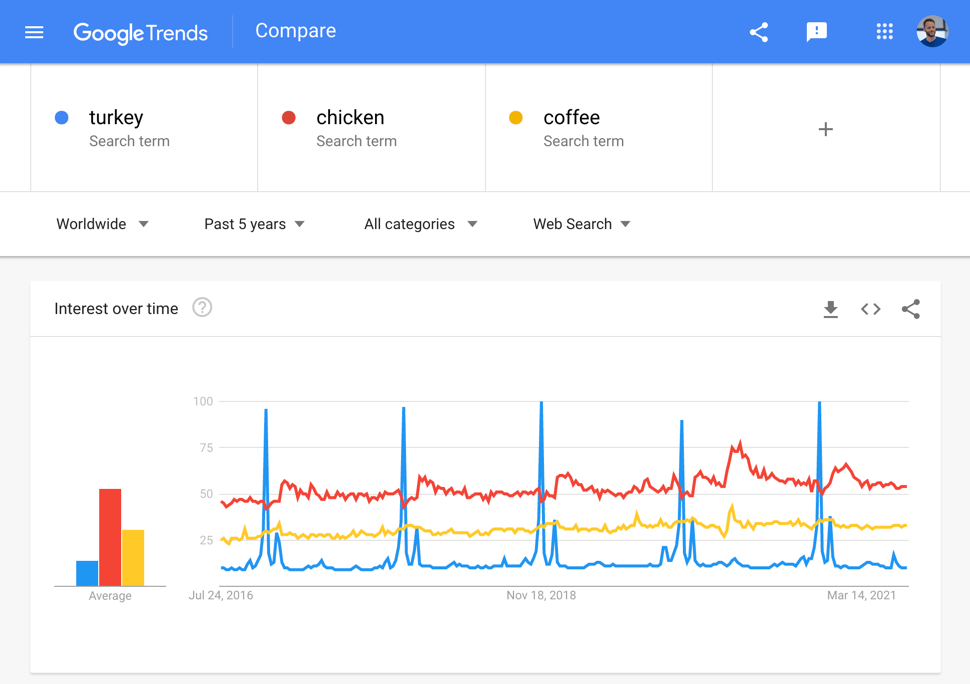In order for your digital marketing efforts to be successful, you need to understand where the traffic to your site comes from and what factors cause it to increase or decrease. To help you do this, the Google Search Center blog has recently published an article explaining the 4 main reasons why organic traffic decreases and how you can identify them.

Top 4 Reasons Why Your Web Traffic Decreases
According to the Google search center, you can deduce what causes a drop in traffic to your website by analyzing the general graph of traffic to it. Depending on the shape of the peaks and valleys of the graph, there are 4 different situations.

1. Site-Wide Technical Problems or Manual Actions
In this case, you will see a sharp drop in traffic that will not recover. This can be caused by technical problems that prevent Google from crawling, indexing ,or displaying your pages to users. It could also be due to a manual action, meaning a Google penalty for having breached its webmaster guidelines.
In order to remedy this type of problem, you have to find out exactly what the issue is and solve it quickly.
2. Algorithm Changes or Technical Problems at a Page Level.
In this case, the decline is less pronounced and that the lower part of the graph oscillates slightly before stabilizing.
Google is continually updating the way it ranks search results, and sometimes those updates can hurt you and cause your site to receive less traffic than usual. If this is the case, you will need to adapt and update your SEO approach to recover from the drop in organic traffic.
3. Reporting Problems
Nobody's perfect and neither is Google. Sometimes there may not actually be a problem with your site, but you see a temporary drop in traffic. In this case, you will see a sudden drop in traffic and then it will go back up to the usual level once the problem is fixed. Remember to correct this in your own reports and forecasts so that the information is not distorted.
4. Seasonality
Does your graph have peaks and valleys that repeat on a regular basis? If so, it may be that the drops in organic traffic are due to seasonality, that is, your product or service experiences more demand at certain times of the year.
To better identify seasonal patterns and trends, try comparing the graph to previous years or use tools such as the keyword planner and Google Trends to assess the interest generated by keywords related to your site at different times.

If you find yourself in this situation, the best thing to do is to plan your marketing strategy to respond to different levels of demand by launching seasonal campaigns.
Where Can You Analyze These Fluctuations?
You can look them up on Google Analytics, or on your personal traffic analysis tool like Hubspot or WordPress. However, the ideal tool for this is Google Search Console.
Registering your domain, subdomain, or folder in this tool is free and will allow you to monitor your organic traffic in Google for the last year and a half.
The best way to find out what has happened to your traffic is to go to the graph in the "Performance" report in Google Search Console where you can analyze the fluctuations and see what exactly what's going on with your website.
Data Scientist en Cyberclick. PhD en Astrofísica por la Universitat de Barcelona con más de diez años de experiencia en investigación mediante el análisis e interpretación de datos. En 2019 redirige su carrera profesional hacia el mundo del Data Science cursando el Postgrado en Data Science y Big Data de la UB, así como participando en el programa Science To Data Science (S2DS) en Londres. Actualmente forma parte del equipo de Data Science y SEM de Cyberclick.
Data Scientist at Cyberclick. PhD in Astrophysics from the University of Barcelona with more than ten years of research experience through data analysis and interpretation. In 2019 he redirected his professional career to the world of Data Science by graduating in Data Science and Big Data from the UB, as well as participating in the Science To Data Science (S2DS) program in London. He is currently part of Cyberclick's Data Science and SEM team.


_%20Advantages%20for%20Marketing.jpg)


Leave your comment and join the conversation